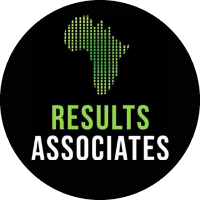
Posted on October 25, 2023
By Aboubakr Kaira Barry, Founder and Managing Director at Results Associates, Bethesda, MD, USA.
Dear Ajay,
I congratulate you on successfully completing your first World Bank annual meeting, which included a new vision and mission: “Create a world free of poverty on a livable planet.”
In this article, I present seven points for your kind consideration that can help anchor the new vision and mission and provide a compatible incentive framework; experience teaches incentives shape what people do.
Firstly, I commend you for openly discussing the strengths of the World Bank and the challenges it faces. I equally applaud your commitment to reducing project review and approval time by one-third, from the current cycle time of 27 months, approval to first disbursement.
Former President of the World Bank, Jim Yong Kim, made a similar observation and commitment ten years ago. On October 11, 2013, he stated, “In the future, I expect finance and development ministers to acknowledge that we are more responsive, easier to work with, and provide them with invaluable global knowledge to address local development challenges.” He further promised to reduce transaction times by one-third.
Before David Malpass (predecessor), “there was Jim Yong Kim who hired a lot of outside consultants to try to overhaul the bank’s deeply siloed internal culture—the type who charge you an arm and a leg to borrow your watch and tell you the time. That was not a success, writes Edward Luce, a columnist at the Financial Times in “The West should pay heed to Ajay Banga, June 2, 2023,” commenting on the reforms launched in this period.
To achieve a different outcome this time, it is crucial to align the new vision and mission with an effective incentive system that encourages timely delivery and the abandonment of what does not work.
Private sector companies have stock prices that constantly validate the decisions made by their senior management. Unlisted companies rely on profit or loss as a measure of effectiveness. In the World Bank, the capital is passively owned and overseen by executive directors for whom doing more with less is not the foremost consideration.
This raises the question: how can we replicate the incentive structure of the private sector in the World Bank as much as possible, to proactively align actions within the bank with the needs of developing countries and swiftly abandon what does not work? As the late management guru Peter Drucker said, the results for all organizations exist outside; inside organizations, we only have costs.
I salute your commitment to a new focused corporate scorecard, consisting of 20 items from 153. This scorecard, you say, will serve as a yardstick of accountability and a guide for your teams to rally around and work towards. I further propose these seven points for your consideration, which I believe can help deliver the impacts you have promised.
First, design the targets in the corporate scorecard based on the perspective of those who benefit from World Bank interventions, as much as practically possible.
Second, utilize blockchain technology and artificial intelligence to create a decentralized ledger system that allows stakeholders to access, on a project-by-project basis, these five datasets:
- Expected outcomes relative to achievements
- Probability of completing projects on time
- Cost overruns
- Cycle time for approval to first disbursement and project completion
- Unit cost of implementing project relative to regional benchmark (e.g., cost of a mile of paved road in Guinea compared with regional benchmark) to disincentivize contract inflation and kickbacks.
This would empower citizens to monitor the efficacy of implementation in real-time, promoting transparency and peer pressure for effective delivery.
Third, entrust the measurement and evaluation of the corporate scorecard relating to project implementation and impact to a reputable independent organization to ensure unbiased reporting.
Fourth, mandate the evaluation of the scorecard from the perspective of the citizens who are meant to benefit from these projects.
Fifth, publish the report to the Board and the public simultaneously to enhance its credibility.
Sixth, implement new personnel policies that explicitly align pay and promotion with results as seen by the beneficiaries from the bank’s financing. And this is where the rubber meets the road.
People do what they get paid for.
But more fundamentally, this singular measure will overtime transform the culture from providing dollars for projects to producing results felt by the poor and vulnerable in developing countries.
Seventh, request the board to consider the results of the independent assessment of performance as a factor in decisions regarding the renewal of the World Bank President’s mandate.
As you emphasized to Michael Forman, President of the Council on Foreign Relations, on September 26, 2023, leadership begins at the top. It is important to start with yourself and what you can do to change the institution for the better.
I am confident that implementation of these seven points will enable you to build a stronger foundation for actualizing the new vision and mission, and mitigate the risk of it being another slogan for raising funds.
Most importantly, it will enable you to fulfill your purpose of handing to the next leader a better and a bigger bank.
In Africa, we pray for your success and wish you the best of luck.
By Aboubakr Barry
Mr. Barry is the managing director of Results Associates, Bethesda, Maryland, a firm that specializes in enhancing financial management in Africa.
